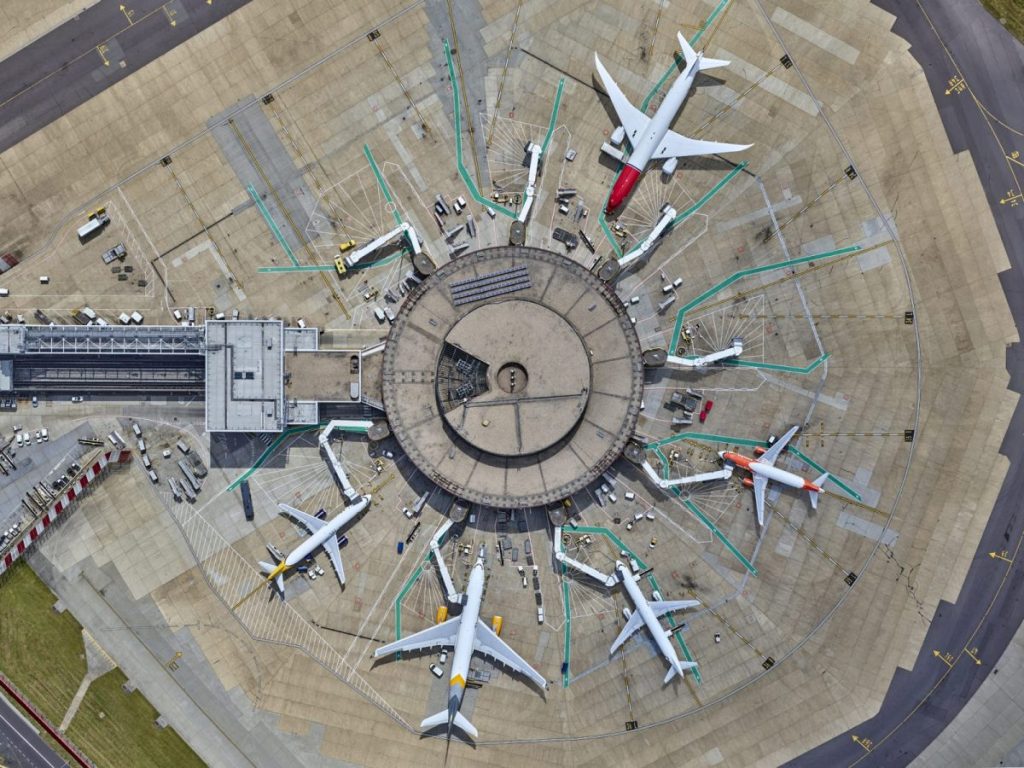
The International Air Transport Association (IATA), which represents most global airlines, told Skift that reaching “net zero” emissions by 2050 remains the goal, despite warnings on Wednesday that the targets may have to be delayed.
However, IATA warned that the sector is struggling to meet the target.
The warning comes after some airlines raised concerns in March about the slow production of the greener sustainable aviation fuel (SAF). Without it, they say, they can’t meet their emissions targets.
“Airlines are fully committed to achieving net zero by 2050, but this is a massive transition – one that airlines cannot accomplish alone,” an IATA spokesperson told Skift. “Unfortunately, we are being let down. Governments have failed to provide the necessary policy support and financial backing to scale up SAF production, even though they have a playbook at hand with how the wind and solar energy industries expanded.”
On Wednesday, Willie Walsh, IATA’s director general and former CEO of British Airways, said the sector is falling behind.
“We’re going to have to reevaluate the commitment to net zero in 2050 because we’re just not getting the support that airlines require,” he told Reuters.
IATA also blamed fuel producers and aircraft manufacturers for the slow progress.
“Despite their pledges, major fuel producers have either stalled or abandoned investments in renewable fuel production, the IATA spokesperson said.
The International Association of Oil & Gas Producers, which represents most of the world’s oil and gas companies, did not respond to Skift’s request for comment.
“Fuel companies are working hard to supply their obligations to meet the targets. We believe that the targets are realistic and can be met,” Fuel Industry UK, which represents major oilers such as BP and ExxonMobil, previously told Skift.
Slow Delivery of Newer and Greener Aircraft
IATA pointed to another major hurdle: the slow delivery of new, more fuel-efficient aircraft.
These planes are estimated to be up to 20% more fuel efficient than older models. That could reduce emissions by the same amount.
“Manufacturers have struggled with supply chain and product issues, failing to deliver the aircraft airlines have ordered,” the IATA spokesperson said.
As of February, Airbus reported a backlog of 8,652 planes, while Boeing had 6,197, according to Forecast International.
The Aerospace Industries Association, which represents Airbus, Boeing and other manufacturers, said the airline industry and other stakeholders need to recognize how complicated it is to build aircraft.
“We urge all stakeholders to recognize the complexity of meeting and exceeding the stringent safety requirements of the global aerospace industry, maximizing efficiencies, while also facing complex regulatory requirements, global economic headwinds, and ongoing supply chain challenges as airlines update their fleets,” Di Reimold, AIA’s Vice President of Civil Aviation, told Skift.
“AIA members prioritize the role of new aircraft in achieving long-term goals, with each generation of aircraft featuring state-of-the-art technologies, including engines that burn 15-20% less fuel than their predecessors. We are working towards a future that addresses demand in the most cost-efficient way possible.”
Many governments around the world say they are working to improve the production of SAF. The European Union has a policy to increase the production of SAF.
“The focus is now on their implementation, and we will offer support where needed. We will later this year present a Sustainable Transport Investment Plan, which will also include aviation fuels,” an EU spokesperson told Skift.
Countries such as the United States, China, and the UK have also previously announced plans to support the production of SAF.
Skift’s in-depth reporting on climate issues is made possible through the financial support of Intrepid Travel. This backing allows Skift to bring you high-quality journalism on one of the most important topics facing our planet today. Intrepid is not involved in any decisions made by Skift’s editorial team.



